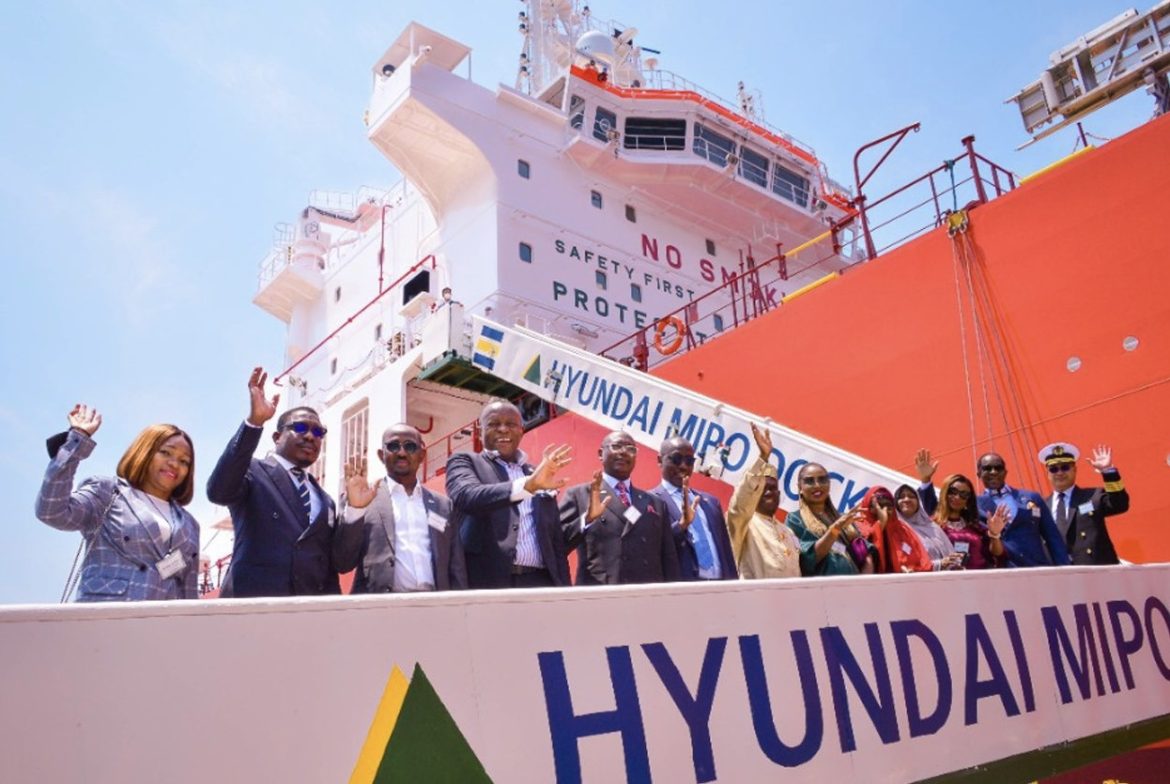KEY POINTS
- Nigeria’s NNPC and Sahara Group launched a 40,000 CBM LPG vessel in South Korea to boost clean energy supply.
- The ship expands WAGL Energy’s fleet capacity to 162,000 CBM, reinforcing its dominance in West African LPG distribution.
- Plans are underway to add more carriers as Nigeria bets on gas to power growth and energy transition.
Nigeria is stepping up its efforts to deepen access to clean cooking fuel and strengthen Africa’s energy infrastructure, unveiling a new Liquefied Petroleum Gas, LPG, carrier that signals both ambition and strategic intent.
President Bola Tinubu, represented by Minister of State for Petroleum Resources (Gas) Ekperikpe Ekpo, presided over the naming ceremony of MT Iyaloja (Lagos), a 40,000 cubic meter dual-fuel LPG vessel, in Ulsan, South Korea, on Monday. The ship is owned by WAGL Energy Limited, a joint venture between the Nigerian National Petroleum Company Limited (NNPC Ltd.) and Sahara Group.
With this addition, WAGL’s total LPG vessel capacity now rises to 162,000 cubic meters, making it one of West Africa’s most significant operators in clean energy shipping. The company has already delivered more than six million metric tons of LPG across the region over the past five years.
Nigeria’s gas ambitions get fresh momentum
Abuja’s efforts to promote gas as the mainstay of its transition strategy and lessen dependency on conventional fuels are reflected in the new vessel. Nigeria plans to take the lead in determining Africa’s contribution to the global clean energy chain, Tinubu said, praising the joint venture’s “strategic foresight and technical excellence.”
According to NNPC Group Chief Executive Officer Bashir Ojulari, the ship marks a significant turning point in Nigeria’s energy strategy. Speaking on behalf of EVP Olalekan Ogunleye, he emphasized that the carrier will support Nigeria’s larger economic development objectives while also assisting in ensuring LPG availability and affordability across the country.
Temitope Shonubi, co-founder of Sahara Group, presented the development as both pragmatic and symbolic. In reference to President Tinubu’s late mother, in whose memory the ship was named, he stated, “The addition of MT Iyaloja (Lagos) embodies the spirit of progress and empowerment championed by the iconic Alhaja Abibatu Mogaji.”
WAGL hinted at even greater goals beyond the commissioning. A Small Gas Carrier and a Very Large Gas Carrier are being considered as part of the fleet’s two-year expansion plans, according to Managing Director Mohammed Sani Bello.
The timing is crucial, according to analysts. West African governments are pushing for cleaner alternatives to firewood and kerosene, and international financiers are giving climate-aligned investments priority, which is expected to increase demand for LPG. In addition to meeting domestic demand, NNPC and Sahara are extending Nigeria’s position as a regional center for the distribution of clean fuel by increasing their shipping capacity.



